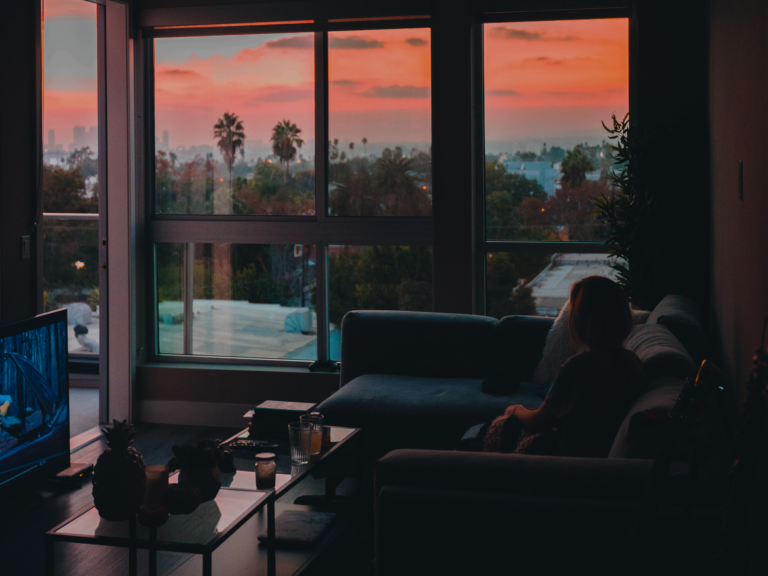For years, The Sound has been fascinated by the concept of “home,” and how its evolving manifestations create changing opportunities for brands. Our research has taught us that “home” is not just a place, but a feeling. That feeling comes to life when key emotional needs are met: stability, belonging, comfort, and creativity.
With the advent of the global CV-19 pandemic and the attendant implementation of social distancing and stay-at-home orders, those emotional needs are under threat –no matter where you live.
For the first instalment in our series on Home in the Time of COVID-19, we’re stepping outside the Western world and focusing instead on the changing experience of “home” through the eyes of two of our colleagues in India.
Is a House Still a Home in COVID-19?
Barkha and Shardooli are strategists in their twenties, based out of The Sound’s India office. This is their account of the early days of lockdown in Mumbai. While their individual experience is just one slice of a larger story, we wanted to share their stories with you as a jumping-off point for a broader investigation. Below, their story, lightly edited for length and clarity.
A State of Flux Ramps up Anxiety and Reduces Stability
Barkha: Ah, home! I can’t believe what once was a place that felt like a peaceful haven has now turned into something that I am still trying to wrap my head around. I feel overwhelmed and exhausted by the invasion of outside activities in a place that once was designated just for relaxing and spending time with my family. Now my home is also the gym, workspace, cafe, etc. These changing dynamics make me feel constantly anxious and “always-on”.
Shardooli: Exactly! And what makes it a lot more difficult is the fact that it’s not just you at home right now –it’s all your extended family members since it is common for many Indians like us to live in these kinds of “joint families”.Before, time together was an exciting and positive thing, because it was rare for everyone to find time to connect. Now, it can be overwhelming.
Barkha: Yes! I feel like I need to escape to find personal space. Even things like spending time video calling friends, playing virtual games on apps like House party and catching up can feel like obligations. I’m only able to try and do what I want to do afterward. Turns out, “me time” during the lockdown isn’t time for myself…
Mental and Physical Constraints Stifle Creativity
Shardooli: Yeah, the more I think about it, there’s something to the idea that having sufficient “me time” is imperative to fuel creativity and growth. I think being stuck at home with a newly over-packed schedule forces us to reign in this creative expression to make time for other things, which is what leaves us feeling so restricted, don’t you think?
Barkha: I know! I miss the organic, unplanned feeling of free time in the past. Now, I feel like I have to make an “appointment” with myself for it to happen at all. It feels so unnatural.
Shardooli: Okay, this is going to sound nerdy, but when I find myself being pulled in various directions vis a vis ‘me time,’ I find spending part of that time alone performing mindless chores both productive and relaxing.
Barkha: I can see that. But also, I don’t like that you have to help out now! I definitely find myself helping out more than earlier, but not with positive feelings.
Shifting Roles and Expectations Undermine Comfort and Belonging
Shardooli: You know, “home” has always been synonymous with family, and a sense of connection with the others we share this space with. But being stuck together within the four walls of our home has certainly disrupted the connection.
Barkha: I know what you mean. I feel the need to constantly be available for household chores. Cleaning the house (in the exact way that my mom wants it!) has led to a million small disagreements that then result in even bigger arguments. Even now, although my family isn’t calling me out as much as they did at first, in the back of my mind I still feel like I am not doing enough. Similarly, having to work from home as a norm now makes me feel a constant sense of guilt if I am not repeatedly checking emails and refreshing work emails, even if it’s during post-work hours.
Shardooli: Same! I too struggle with getting things done in the particular way my family wants me to. But, honestly, I also find that having to structure my day to accommodate office work, home chores and some ‘me time’ is giving me not only a sense of accomplishment on completing these tasks but also a routine to stick to in a time when I really need one. Forcing myself to put hard stops to my ‘office day’ and SWITCH OFF because I know I have to lend a hand during dinner –that’s something I didn’t do before, but I do now. And it’s a good thing, in its own way. I force myself to take a break from work and not obsess over needing to answer an email immediately.
Barkha: Yes! Work has been such a strong source of stability in our lives, that I’m finding it both hard to focus and hard to “turn off” now that so much is in flux. I miss the support systems and routines that gave us the luxury of making it our primary focus, pre lockdown.
Shardooli: So, the million-dollar question: how can we regain the feeling of home in a time like this? And what roles can brands play to help with that?
Barkha: I’m glad you asked!
Thought-starters for Rebuilding the Feelings of Home
Stability
Focusing on people’s new or evolving routines, identifying opportunity based on those routines’ shifting emotional and functional significance
- If people’s outlook on a routine has shifted for the better, your brand may have an opening to amplify its place as a stability-builder
- If people’s outlook on a routine has shifted for worse, your brand may have an opening to reduce discomfort and instability
Comfort
- Cultivating comfort in the midst of a finite space that has to fulfill a myriad of needs
- Guiding people toward self-sufficiency and accomplishment vis a vis household tasks and chores, particularly since supporting players in the home ecosystem are no longer present
Belonging
- Exploring the emotional and physical levers that can contribute to and/or undermine feelings of connection
- Understanding the kind of balance people are looking for vis à vis socialization vs alone time –and when / how your brand has an opening to foster one or both
Creativity
- Finding ways to support self-expression, even when resources may be limited
- Understanding the balance between personal progress and relaxation that people are striving for in this time
- Recognizing the role of “me time” in fostering creativity –and identifying how your brand can help cultivate constructive “me time”
In the weeks to come, we’ll continue revisiting and expanding on our insights around the feelings of home, as well as the “home invaders” that undermine it, in the context of CV-19 around the globe.
For more thought-starters in the meantime, download our original full report here.


